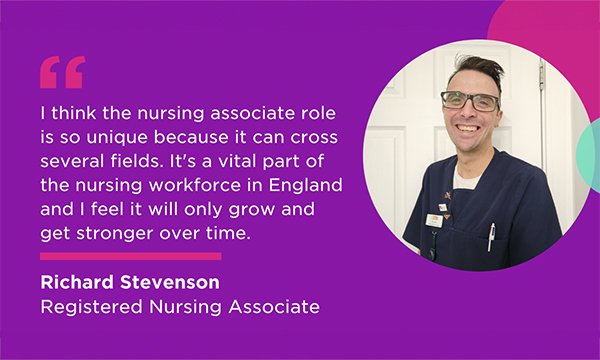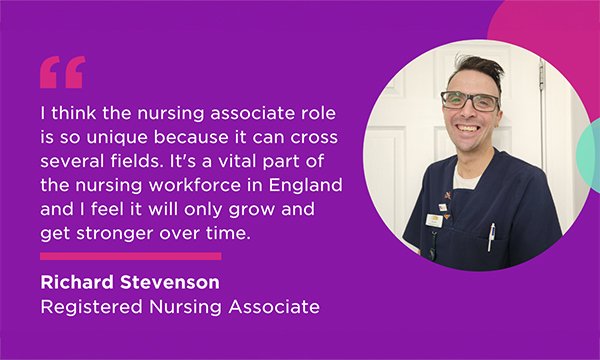Nursing associates celebrate five years of service in NHS

Nursing leaders praise benefits the role brings to the health service and patient care, while nursing associates share their experiences on social media

It has been five years since the first cohort of nursing associates (NAs) joined the Nursing and Midwifery Council (NMC) register, with thousands now working in the NHS.
NAs were first introduced in England in 2019 with the role designed to bridge the gap between healthcare assistants and registered nurses.
The NMC said the role has helped widen access to a career in health and care for many people, offering a different pathway for those wanting to become registered nurses. There are now more than 10,000 NAs on the register, and almost 1,500 more have become registered nurses.
Nursing associates ‘make an invaluable contribution to the public’s health’
NMC chief executive Andrea Sutcliffe said: ‘We’ve come such a long way since the first cohort of nursing associates joined our register five years ago.
‘Their compassion and commitment are clear to see, working closely with their wider teams to support people’s care. Whether working in hospitals or in the community, or now practising as registered nurses, they make an invaluable contribution to the public’s health and well-being.’
To mark the milestone, the NMC asked nursing professionals, students and educators to share their thoughts and reflections about the role on social media.
Nursing associate training pathway benefits career progression
Chief nursing officer for England Dame Ruth May said: ‘Since its introduction, the nursing associate role has made a huge contribution as part of the multidisciplinary team and provides essential care and support to patients and their families.
‘As well as being a vital profession in its own right, the nursing associate training pathway also plays an important role in career progression – recognising talent and offering opportunities to healthcare support workers to progress if they want to, as well as providing a potential onward route from nursing associate to registered nurse.’
The first NHS Long Term Workforce Plan, published last June, pledged to increase the number of NAs to 64,000 full-time equivalents by 2036-37 as part of wider plans to grow the nursing workforce.
Concern that nursing associates could be seen as substitute for registered nurses
When NAs were first introduced in England, concerns were raised that they could be used to replace nurses and reduce staffing costs, ultimately putting patient safety at risk. Those concerns have prevailed as the government looks to ramp up the number of NAs to support the NHS workforce.
The Welsh Government announced plans this month to introduce regulated NAs to support the delivery of safe patient care. Wales minister for health and social services Eluned Morgan confirmed that the introduction of the band 4 role will mirror that of NAs in England.
But RCN Wales has raised similar concerns that NAs could be seen as a substitute for registered nurses by NHS organisations facing high nurse vacancies and financial pressure.
In other news

